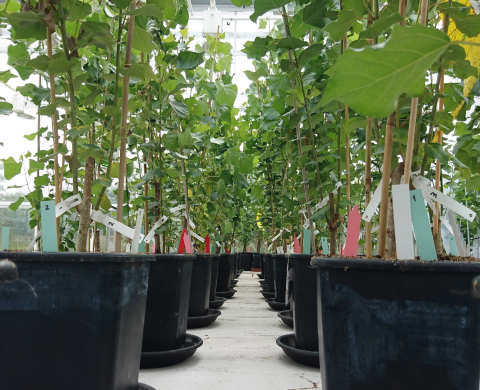Epigenetic contribution to phenotypic plasticity in Populus nigra

Details
- Department
- Terrestrial Ecology
- Research group
- Verhoeven Group
- Funding
- Marie Skłodowska-Curie
This project is a component of the EpiDiverse MSCA-ITN European training network. In long-lived sessile organisms such as trees, phenotypic plasticity is an important requirement for successful persistence in changing or variable environments. Epigenetic mechanisms have the potential to mediate long-term plastic responses to environmental change. However, the importance of epigenetic mechanisms such as DNA methylation as regulators of adaptive plasticity is not well known. In this project we will experimentally evaluate effects of stress exposure on DNA methylation, transposable element activity and gene expression in black poplar (Populus nigra), with the aim to (1) identify genomic loci that show stress-induced epigenetic modification with functional consequences, and (2) evaluate the temporal stability of such loci, for example across growing seasons. Making use of clonally propagated trees that have grown in contrasting environments, we will also investigate to what extent environment-induced epigenetic differences are transmitted to offspring via clonal propagation (cuttings) versus via sexual reproduction through seeds, using allele-specific DNA methylation analysis. Experiments will be carried out in close interaction with other Populus nigra projects within the EpiDiverse consortium (at Marburg University, Germany and at the Institute of Applied Genomics, Udine, Italy).
Details
- Department
- Terrestrial Ecology
- Research group
- Verhoeven Group
- Funding
- Marie Skłodowska-Curie
